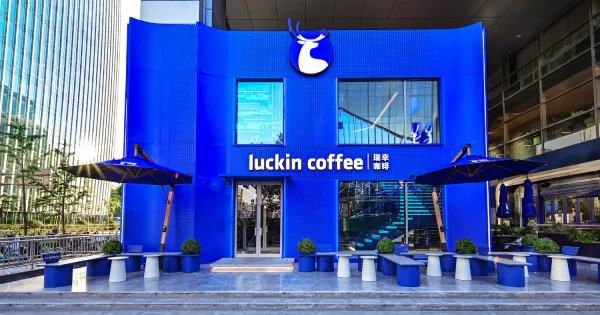10 Ways to Delegate Effectively in Business

Delegation is a fundamental leadership skill that is often overlooked or poorly executed. Many leaders try to take on too much, leading to burnout and inefficiency. Effective delegation isn't just about assigning tasks—it's about empowering your team, leveraging their strengths, and building trust.
By delegating effectively, leaders can improve productivity and allow their team to grow in skills and confidence. We will explore 10 strategies to help you delegate more efficiently and boost leadership success.
Way 1) Understand the Importance of Delegation

Effective delegation starts with a deep understanding of its significance in the business environment. Leaders who try to do everything themselves often face burnout, decreased productivity, and limited scalability. Delegating is a strategic tool that allows managers to focus on high-level activities like planning, strategy, and decision-making, while the team handles the execution of tasks. Here’s why delegation is crucial:
- Maximizes efficiency: Delegating tasks frees up time for leaders to focus on tasks that require their expertise, such as long-term strategy, innovation, and business growth.
- Encourages team growth: When employees are trusted with responsibilities, they develop new skills, become more engaged, and gain a greater sense of ownership over their work.
- Improves decision-making: Delegating to team members who are closer to the task often leads to better decision-making because they have hands-on knowledge of the situation.
- Fosters leadership development: Delegation helps identify future leaders by giving employees opportunities to step up and demonstrate their capabilities.
In short, successful leaders realize that they can’t—and shouldn’t—do everything themselves. Delegation is not about offloading work, but rather about optimizing your team’s collective skill set for the betterment of the business.
Way 2) Know Your Team’s Strengths and Weaknesses

One of the key components of effective delegation is understanding the unique strengths and weaknesses of each team member. No two employees are the same, and assigning tasks without considering individual skill sets can lead to poor performance and frustration. To delegate effectively:
- Assess each team member’s skills: Take the time to understand what each team member excels at. Some employees may be strong in data analysis, while others may be better suited for creative tasks or project management.
- Identify development areas: While delegating, it’s important to also recognize areas where your employees can grow. Assigning tasks that push them outside their comfort zones, with the right guidance, can help develop their skills.
- Match tasks with abilities: The best way to ensure success is to align tasks with team members’ strengths. For example, if an employee has strong communication skills, delegate tasks related to client interaction or team coordination.
- Avoid overloading: While it’s tempting to delegate a lot of work to the most capable team members, this can lead to burnout. Instead, distribute tasks in a way that balances skill with capacity.
Delegating according to your team's strengths and areas for improvement not only increases the chances of success but also enhances job satisfaction and team morale.
Way 3) Communicate Clearly and Provide Context

Clear communication is at the heart of successful delegation. It’s not enough to simply assign a task—you must ensure that the person you’re delegating to understands the purpose, context, and expected outcome. Here’s how to communicate effectively when delegating:
- Be specific: Vague instructions lead to confusion. Provide clear details about what needs to be done, when it needs to be completed, and how the task fits into the larger business goals.
- Provide context: When delegating tasks, explain why they are important. Understanding the “why” helps employees see the bigger picture, which can lead to better decision-making and more thoughtful execution.
- Set clear boundaries: If there are specific guidelines or limitations, make sure these are communicated upfront. For instance, if the task requires following certain protocols or sticking to a budget, this should be clear from the outset.
- Encourage questions: Don’t assume that your team fully understands the task after your initial explanation. Encourage them to ask questions, seek clarification, or propose alternative methods if they think they can improve the process.
- Confirm understanding: Before wrapping up the conversation, ask the person to summarize the task or repeat key points to ensure that they have a full grasp of what’s expected.
By communicating effectively, you reduce the risk of misunderstandings, mistakes, and missed deadlines, while empowering your team to take ownership of the tasks assigned to them.
Way 4) Set Clear Expectations and Goals

When delegating, it’s critical to set clear expectations and define specific goals. Employees need to know not only what you expect from them but also how their success will be measured. To ensure clarity, follow these steps:
- Define success: Provide a clear definition of what success looks like for the task or project. This could include specific deliverables, quality standards, deadlines, or performance metrics.
- Set deadlines: Make sure to establish a realistic timeline for task completion. Be clear about whether the deadline is flexible or firm, and provide ample time for the person to complete the task without unnecessary stress.
- Clarify priorities: If the task is one of many on the employee’s plate, help them understand how to prioritize. Are there certain milestones that should be met before other tasks can be addressed?
- Establish checkpoints: For longer projects or complex tasks, set interim deadlines or progress check-ins. These allow you to monitor progress and provide feedback along the way without micromanaging.
- Make goals achievable: The objectives you set should be challenging but attainable. Unrealistic goals can demoralize employees, while achievable goals will motivate them and create a sense of accomplishment.
Setting clear goals and expectations ensures that both parties are aligned, reducing the likelihood of mistakes and improving the chances of successful completion.
Way 5) Delegate Authority, Not Just Tasks

One of the common mistakes in delegation is handing over tasks without granting the necessary authority to make decisions. Effective delegation involves empowering employees with the responsibility and authority they need to complete the task autonomously. Here’s how to delegate authority effectively:
- Empower decision-making: Grant employees the freedom to make decisions related to the task. This shows trust and allows them to take ownership of the work.
- Provide guidelines: While delegating authority, set clear boundaries so that employees understand what decisions they are authorized to make and where they should seek approval.
- Avoid interference: Once you delegate a task, resist the urge to step in or micromanage. Constant interference can undermine the employee’s confidence and make them reliant on you for decisions.
- Trust the process: Even if the employee approaches the task differently than you would, trust that they will reach the desired outcome in their own way. Give them the space to solve problems independently.
- Be available for support: While it’s important to grant autonomy, make sure employees know you’re available if they encounter significant challenges or need guidance.
Delegating authority creates a sense of ownership and responsibility, leading to higher-quality results and more motivated employees.
Way 6) Provide the Necessary Resources and Support

Effective delegation goes beyond assigning tasks—it requires providing your team with the tools, resources, and support they need to succeed. Without adequate resources, even the most capable employees may struggle to complete tasks to the expected standard. To delegate effectively:
- Identify resource needs: Before delegating a task, assess what resources will be required. This could include access to software, additional staff, information, or budgetary support.
- Provide training if necessary: If the task requires specific skills that the employee lacks, offer training or guidance to bridge the gap. This investment in their development will pay off in the long run.
- Ensure access to information: Make sure employees have all the information they need to complete the task. This could involve giving them access to relevant data, documents, or key contacts within the organization.
- Offer guidance and mentorship: While you want to avoid micromanaging, it’s important to offer support when necessary. Be available to answer questions, provide feedback, or help the employee overcome obstacles.
- Allocate sufficient time: Ensure that the employee has enough time to complete the task without being overwhelmed by other responsibilities.
Providing resources and support ensures that your team can complete the task effectively and without unnecessary stress.
Way 7) Trust Your Team and Avoid Micromanagement

Trust is the foundation of effective delegation. Once you’ve assigned a task and provided the necessary resources, it’s important to trust your team to deliver results without constant oversight. Micromanagement not only undermines your employees’ confidence but also defeats the purpose of delegation. Here’s how to avoid micromanagement while maintaining accountability:
- Give space: After delegating, step back and allow the person to work on the task. Constantly checking in or providing unsolicited advice can lead to frustration and hinder productivity.
- Encourage problem-solving: Allow your team to solve problems on their own, even if it means they make small mistakes along the way. These mistakes provide valuable learning opportunities.
- Focus on outcomes, not methods: Instead of dictating how a task should be completed, focus on the final result. As long as the employee meets the established goals, the process they choose should not matter.
- Set regular check-ins: While you don’t want to micromanage, it’s important to stay updated on progress. Schedule periodic check-ins to discuss progress and offer feedback without hovering.
- Celebrate small wins: Recognize progress and celebrate achievements along the way. This builds trust and shows your team that you believe in their abilities.
Trusting your team is essential for effective delegation. When employees feel trusted, they are more likely to take ownership, be proactive, and deliver high-quality work.
Way 8) Monitor Progress and Provide Feedback

While it’s important to avoid micromanagement, successful delegation requires a balance of trust and oversight. Monitoring progress ensures that the task stays on track, while providing feedback helps employees improve and develop their skills. Here’s how to strike that balance:
- Establish regular check-ins: For longer projects, set regular progress reviews. These meetings should be brief and focused on updates, challenges, and any additional support the employee may need.
- Use project management tools: Consider using project management software to track progress without needing constant check-ins. Tools like Trello, Asana, or Monday.com allow employees to update their progress, giving you visibility without intruding on their work.
- Give constructive feedback: If issues arise or the task is not progressing as expected, provide constructive feedback. Focus on solutions rather than criticism, and help the employee identify ways to improve.
- Celebrate milestones: Acknowledge progress as the task moves forward. Celebrating small achievements boosts morale and encourages continued effort toward the final goal.
- Be proactive: If you notice that the task is veering off course, address the issue early. A timely intervention can prevent small problems from becoming bigger issues later on.
Monitoring progress without micromanaging ensures that you stay informed, while providing feedback helps employees grow and improve.
Way 9) Recognize and Reward Achievements

Recognition is a powerful motivator and a key aspect of effective delegation. When employees feel that their efforts are acknowledged and appreciated, they are more likely to stay engaged and motivated. Here’s how to recognize and reward achievements effectively:
- Public acknowledgment: Acknowledge accomplishments in team meetings or company-wide communications. Public recognition not only motivates the individual but also sets a positive example for the rest of the team.
- Provide meaningful rewards: Rewards don’t have to be financial. Offering additional responsibilities, professional development opportunities, or even a simple “thank you” can go a long way in making employees feel valued.
- Celebrate team successes: If the task was a team effort, recognize the entire group. Team-based rewards encourages collaboration and reinforce the idea that success is a collective effort.
- Give timely recognition: Don’t wait until the end of a project to recognize effort. Offer praise along the way to keep motivation high throughout the process.
- Tailor rewards to individual preferences: Some employees prefer public recognition, while others may appreciate a more private acknowledgment. Tailor your rewards to fit individual preferences to make the recognition more meaningful.
By recognizing and rewarding achievements, you reinforce positive behavior and motivate your team to continue performing at a high level.
Way 10) Evaluate and Learn from the Delegation Process

After the task is completed, take the time to evaluate the delegation process. Reflecting on what worked well and what could be improved is crucial for refining your delegation strategy over time. Here’s how to evaluate and learn from the process:
- Conduct a post-project review: Once the task is completed, sit down with the person or team to discuss the process. What went well? What challenges arose? How could the process be improved for future tasks?
- Identify areas for improvement: Even if the task was completed successfully, there may be opportunities for improvement. Were there any communication gaps? Could deadlines have been clearer?
- Learn from mistakes: If something didn’t go as planned, use it as a learning experience. What could have been done differently? How can you apply these lessons to future delegation efforts?
- Solicit feedback from your team: Ask for feedback from the person you delegated to. How did they feel about the process? Did they have enough support and resources? This feedback is valuable for improving your delegation approach.
- Continuously refine your approach: Delegation is a skill that improves with practice. Continuously refining your approach based on past experiences will make you a more effective leader.
Evaluating the delegation process helps ensure continuous improvement, leading to more effective delegation and better team performance over time.
Final Thoughts
Delegating effectively is a key leadership skill that boosts productivity, encourages team growth, and supports business success. By understanding the importance of delegation, recognizing team strengths, and communicating clearly, leaders can assign tasks strategically and provide the support needed for optimal performance.
Implementing these 10 strategies builds trust, empowers employees, and encourages collaboration. Effective delegation allows leaders to focus on high-level tasks while enabling their team to take ownership and contribute to the success of the business.
Key Takeaways
| Delegation Strategy | Key Takeaway |
|---|---|
| 1. Importance of Delegation | Delegation boosts efficiency and helps leaders focus on key tasks while developing the team. |
| 2. Know Your Team | Assign tasks based on individual strengths and areas for growth. |
| 3. Clear Communication | Provide clear instructions and context to avoid confusion. |
| 4. Set Expectations | Define clear goals and deadlines to guide the task. |
| 5. Delegate Authority | Give employees decision-making power, not just tasks. |
| 6. Provide Resources | Ensure employees have the tools and support needed to succeed. |
| 7. Trust Your Team | Avoid micromanaging; trust your team to get the job done. |
| 8. Monitor Progress | Check in regularly and provide feedback without over-controlling. |
| 9. Recognize Achievements | Celebrate successes to keep the team motivated. |
| 10. Evaluate and Improve | Reflect on the process to improve future delegation efforts. |





